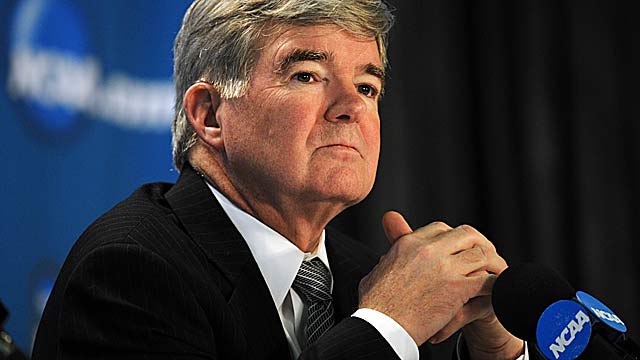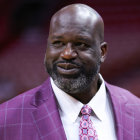
In theory, streamlining the NCAA's gargantuan rulebook and giving the beleaguered organization (and its member schools' legion of compliance officers) a break from tracking every text, phone call or social-media message sent by the recruiters that it oversees sounds like a fine idea.
But after that proposal's adoption by the NCAA's Division I Board of Directors in January, that theory has been blasted by any number of those recruiters, coaches and administrators -- and that's before it's even put into practice. (Maryland's Randy Edsall was the most recent, offering this blunt assessment on the new rules on Monday: "I hate them.") The result is that the NCAA is already preparing to step back from the original deregulation package and "modify" its modifications.
"We're reaching out to folks to see what they're thinking," NCAA vice president David Berst told USA Today on Thursday. "You had some football coaches, a few conferences, some institutions that have expressed concerns. I expect, whether you have some number of overrides or just people talking to us, we're going to end up at the next board meeting trying to assess that information and probably modify the legislation accordingly."
Though the deregulation rules changes can be rejected through official override proposals from NCAA member schools and conferences -- the Big Ten has already announced it would be preparing such an override -- Berst said the same presidential working group that created the first set of proposals would attempt to make those modifications itself before the next Board of Directors meeting on May 2.
"We'll try to circulate that to the membership as well, probably a couple weeks ahead of the board meeting," Berst told USA Today, "so people can see what it is if they disagree still."
Take a moment -- a very rare moment -- to sympathize with the NCAA, which is portrayed in many circles as a collection of intrusive red-tape-loving busybodies. It took a major step toward discarding that red tape and aiming its enforcement sights more squarely on the major infractions cases that have soiled the sport's name -- and was rewarded by having high-profile figures like Georgia athletic director Greg McGarity turn around and accuse it of opening the floodgates on an unsightly recruiting arms race. The NCAA, it seems, cannot win.
But if it can't win, the best it can do is try to lose less. And at least revisiting the new rules -- this time with much greater feedback from the coaches who'll be most affected -- seems like a positive step.




















